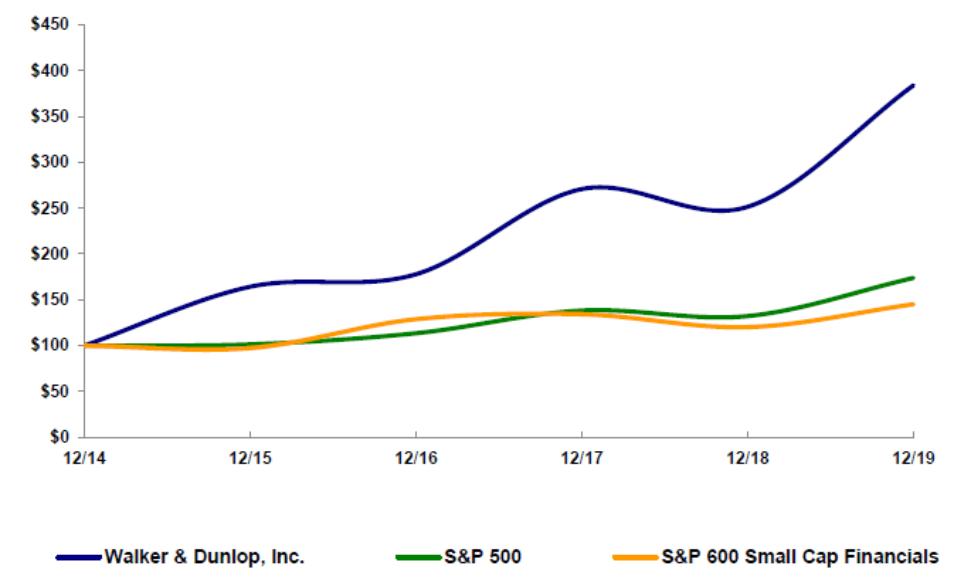Our future success depends, in part, on our ability to expand or modify our business in response to changing client demands and competitive pressures. In some circumstances, we may determine to do so through the acquisition of complementary businesses or investments in new ventures rather than through internal growth.
Risks Relating to Regulatory Matters
If we fail to comply with the numerous government regulations and program requirements of the Agencies, we may lose our approved lender status with these entities and fail to gain additional approvals or licenses for our business. We are also subject to changes in laws, regulations and existing Agency program requirements, including potential increases in reserve and risk retention requirements that could increase our costs and affect the way we conduct our business, which could materially and adversely affect us.
Our operations are subject to regulation by federal, state, and local government authorities, various laws and judicial and administrative decisions, and regulations and policies of the Agencies. These laws, regulations, rules, and policies impose, among other things, minimum net worth, operational liquidity and collateral requirements. Fannie Mae requires us to maintain operational liquidity based on a formula that considers the balance of the loan and the level of credit loss exposure (level of risk-sharing). Fannie Mae requires us to maintain collateral, which may include pledged securities, for our risk-sharing obligations. The amount of collateral required under the Fannie Mae DUS program is calculated at the loan level and is based on the balance of the loan, the level of risk-sharing, the seasoning of the loan, and our rating.
Regulatory authorities also require us to submit financial reports and to maintain a quality control plan for the underwriting, origination and servicing of loans. Numerous laws and regulations also impose qualification and licensing obligations on us and impose requirements and restrictions affecting, among other things: our loan originations; maximum interest rates, finance charges and other fees that we may charge; disclosures to consumers; the terms of secured transactions; debt collection; personnel qualifications; and other trade practices. We also are subject to inspection by the Agencies and regulatory authorities. Our failure to comply with these requirements could lead to, among other things, the loss of a license as an approved Agency lender, the inability to gain additional approvals or licenses, the termination of contractual rights without compensation, demands for indemnification or loan repurchases, class action lawsuits and administrative enforcement actions.
Regulatory and legal requirements are subject to change. For example, Fannie Mae increased its collateral requirements, on loans classified by Fannie Mae as Tier II, from 60 basis points to 75 basis points, effective as of January 1, 2013, which applied to a large portion of our outstanding Fannie Mae at risk portfolio. The incremental collateral required for existing loans was funded over a two-year period ending December 31, 2014. The incremental requirement for any newly originated Fannie Mae Tier II loans will be funded over the 48 months subsequent to the sale of the loan to Fannie Mae.
If we fail to comply with laws, regulations and market standards regarding the privacy, use, and security of customer information, or if we are the target of a successful cyber-attack, we may be subject to legal and regulatory actions and our reputation would be harmed.
We receive, maintain, and store non-public personal information of our loan applicants. The technology and other controls and processes designed to secure our customer information and to prevent, detect, and remedy any unauthorized access to that information were designed to obtain reasonable, not absolute, assurance that such information is secure and that any unauthorized access is identified and addressed appropriately. We are not aware of any data breaches, successful hacker attacks, unauthorized access and misuse, or significant computer viruses affecting our networks that may have occurred in the past; however, our controls may not have detected, and may in the future fail to prevent or detect, unauthorized access to our borrower information. In addition, we are exposed to the risks of denial-of-service (“DOS”) attacks and damage to or destruction of our network or other information systems. A successful DOS attack or damage to our systems could result in a delay in the processing of our business, or even lost business. Additionally, we could incur significant costs associated with the recovery from a DOS attack or damage to our systems.
If borrower information is inappropriately accessed and used by a third party or an employee for illegal purposes, such as identity theft, we may be responsible to the affected applicant or borrower for any losses he or she may have incurred as a result of misappropriation. In such an instance, we may be liable to a governmental authority for fines or

